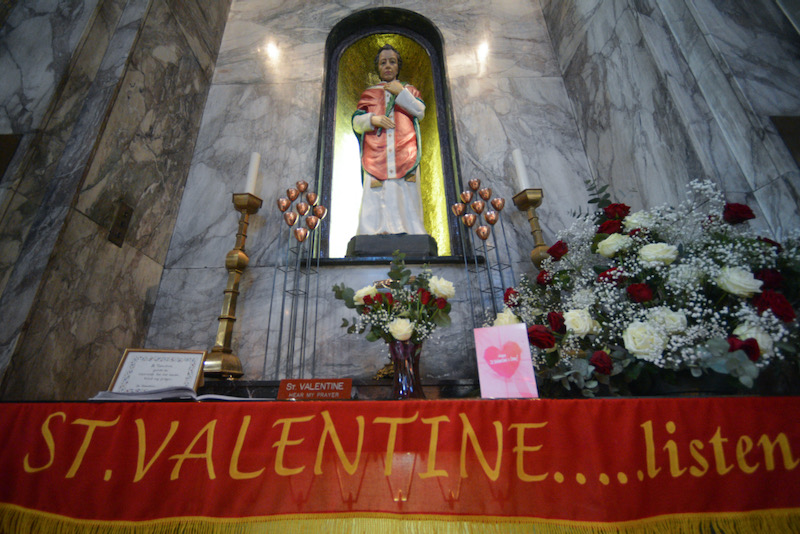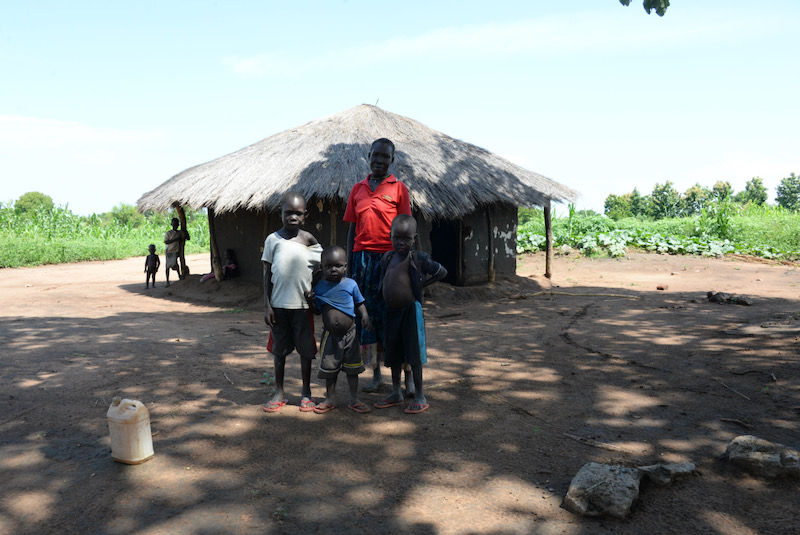“What region became an independent state in 2011?”
“South Sudan.”
Our quiz team moved on to the next question. But how much else did the team – or any of us in the global North – know about this war-torn country, cited by the American Fund for Peace’s Fragile States as highest scoring?
Rosalind Russell’s powerful new book, The End of Where We Begin (Penguin 2020) presents harrowing insights into the real-life stories of three vulnerable young people caught up in fighting, brutality and forced exile. We glimpse scenes of the horror they are fleeing. These are people who have not even considered the possibility of leaving Africa, who have stayed relatively near their homes and who hope to return when the fighting eventually stops. They have become the orphans of South Sudan, sheltering in next-door Uganda.
Bidi Bidi in northern Uganda, 50 miles from the South Sudan border, is a vast agglomeration of living spaces the size of a small city. Each refugee family is allocated a plot of land and a shelter of stick-and-plastic. It is called a settlement rather than a camp: there is no surrounding fence, the inhabitants can come and go, the borders move inexorably outwards. The Ugandan government employs Ugandans to police and administer in return for international financial support.
The system works. Although the plots of land are infertile and stony, it is just possible to grow a small amount of vegetables; aid agencies ensure that everyone receives subsistence supplies; groups coalesce to build more solid houses. The government is happy to support a reliable source of paid employment; harmony with the neighbours is encouraged with 30 per cent of every handout going to the local villages while 70 per cent goes to the refugees. Residents have established small business with stalls selling second-hand clothes, vegetables, snacks and laundry soap. There are grinding mills, hair salons, bicycle repair shops and charging stations for the minority who own a mobile phone. No one would claim this is ideal – but it works after its own fashion and it begins to restore the personal dignity and self-belief ripped from refugees by their traumatic experiences.
At a husting for the 2015 election in Britain, the question was asked: “If you are elected, what will be your policy towards the refugees drowning in the Channel?” A candidate responded that she was from Pakistan herself, and her view was that we should not allow any more “people like that” to enter this country. The government that was elected, however, legislated for 20,000 Syrian refugees to come to Britain.
Although a tiny number compared to the million invited into Germany by Angela Merkel, this has proved workable and the UNHCR has facilitated the arrival of many desperate families. There are men and women who have been tortured; families who lost homes and possessions in bombing raids; people with life-threatening illness in a country where even the hospitals have been razed. Money has been allocated to support them through local councils and volunteers have gathered to provide support teams – a small contribution to alleviate the appalling suffering of millions of people displaced by war.
The many moving stories of success and gratitude often seem small scale and do not make headlines. The Welsh community that warmly welcomed Syrian refugees were deeply moved when, one year on, the refugees presented each of their neighbours with flowers and a carefully copied thank you note. A volunteer was given a beautiful new coat by grateful refugee parents who had saved up unstintingly to afford it. And every visit is an occasion for Syrian delicacies, baklava and strong black tea.
Many refugees, however, would be happier in a familiar climate, near relatives and friends who regularly visit and socialise, speak the same language and celebrate the same festivals. Britain is not an ideal haven for all, as they soon discover. Eleven families sent to the island of Bute, off the coast of Scotland, found plenty of houses and the local authority leant over backwards to make them at home even giving out smart bicycles to the children – which upset some local parents who couldn’t afford such luxuries. But there was no work and all but one family have left. Families invited to cities have often fared better than in remote islands but in Covid times even here they are much less likely to find work.
Work is in short supply. No wonder people are angry if they see incomers taking the jobs they considered theirs. Britain is short of housing too. Wouldn’t you be furious if you heard that a refugee who arrived yesterday has a house while your own family has been waiting for years? Tempers are liable to flare even though refugees introduced by the Vulnerable Persons Resettlement Scheme (VPRS) are not and will not be given public housing. Volunteers have to search out generous private landlords and some local communities have given time and energy to make dilapidated houses fit for habitation.
Government responses have been less generous, less humane. The Home Secretary, Priti Patel, justifies taking fierce action against would-be immigrants and “economic migrants” who try to enter the country in rubber dinghies after failing to enter legally. Boris Johnson cut the aid budget and rolled up the Department for International Development with the Foreign Office. In a misguided attempt to exert control and save money he claimed: “Distinctions between diplomacy and overseas development are artificial and outdated.” How very wrong he is.
Support for the downtrodden and suffering is an aim in its own right. And the move will come back to haunt its perpetrators when more suffering and more poverty drive further streams of desperate exiles to seek a home in Britain by illegal routes, in rubber dinghies or even in the undercarriage of a plane, because they see no other way forward. How much more fruitful to support the wonderful work of aid agencies in Bidi Bidi than to send vessels of war by sea and by air to deter desperate refugees.
With many thanks to Rosalind Russel - formerly editor for the Thomson Reuters Foundation on human rights stories – for her powerful and harrowing account of three refugee lives in The End of Where we Begin (Impress books 2020) and for her willingness to discuss with me the issues raised in this article.



 Loading ...
Loading ...
What do you think?
You can post as a subscriber user ...
User comments (0)